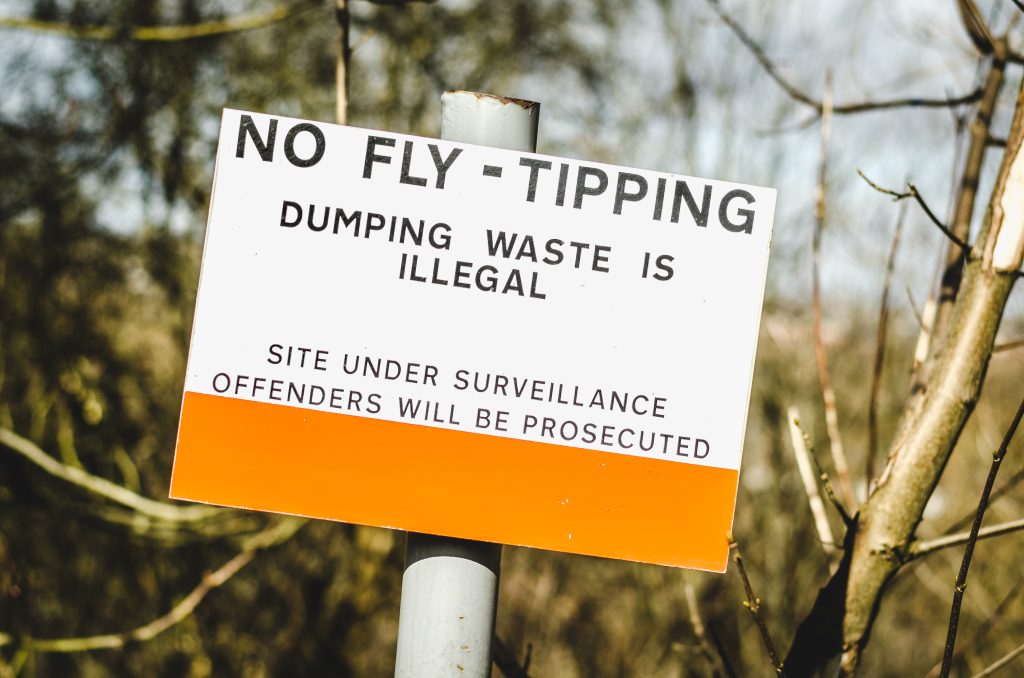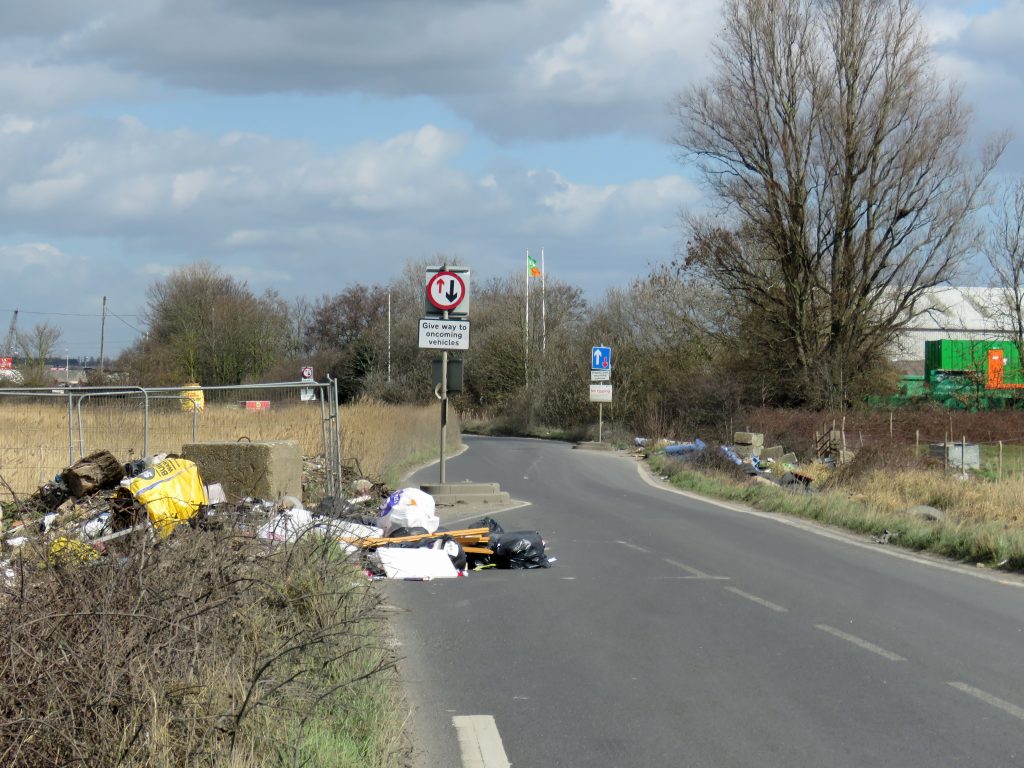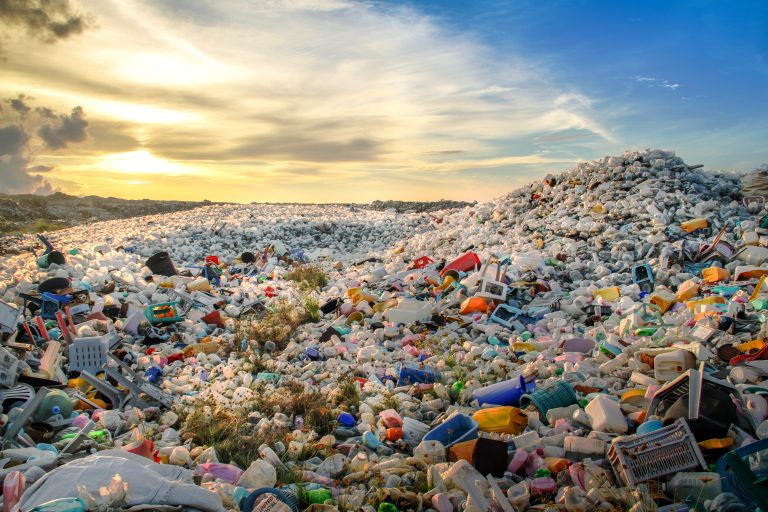Fly tipping, the illegal dumping of waste in public or private areas, is a growing problem worldwide. This harmful practice damages the environment, threatens public health and negatively impacts local economies and communities. In this blog, we’ll explore what fly tipping is, its harmful effects and how individuals and communities can help tackle this issue.
What is Fly Tipping?
Fly tipping involves the illegal disposal of waste in unauthorised locations, such as alleyways, parks, roadsides, or remote areas. Unlike legal waste disposal, which involves licensed waste carriers or recycling centres, fly tipping occurs without regard for public health or the environment. This waste can range from household items, like furniture and mattresses, to hazardous materials like chemicals, asbestos and medical waste.
Why is Fly Tipping Bad?
- Environmental Damage
Fly tipping harms the environment by contaminating natural spaces such as woodlands, riverbanks and parks. Waste like plastic, metal and glass can take hundreds of years to break down, leaching toxins into the soil and water. Hazardous materials, such as paint cans or electronics, can release harmful chemicals, worsening pollution and threatening wildlife. Additionally, waste dumped in public areas can be blown around by the wind or washed away by rain, spreading contamination further and affecting even larger areas. - Health Risks
Fly tipped waste, particularly hazardous materials, poses serious health risks. Broken glass, discarded medical supplies and sharp objects can lead to injuries for people who come into contact with them. Waste that contains chemicals, oils, or paint can seep into the soil and water, potentially contaminating drinking water and harming public health. In some cases, fly tipped waste may contain asbestos, which can cause respiratory diseases when inhaled. - Cost to Local Authorities and Taxpayers
Local authorities are often left with the responsibility of cleaning up fly tipped waste, which comes at a high cost. The money spent on cleanup efforts, removal, disposal and land remediation could otherwise be used for public services and community improvements. Taxpayers are the ones who bear these costs and resources used for fly tipping enforcement and cleanup could be better invested elsewhere. - Impact on Communities
Fly tipping negatively affects the quality of life in affected communities. It creates eyesores, lowering local morale and discouraging people from maintaining clean surroundings. The presence of fly tipped waste can also reduce property values and harm local businesses. Furthermore, frequent fly tipping can make communities feel neglected or unsafe, encouraging antisocial behaviour and further damage. - Threat to Wildlife
Wildlife is particularly vulnerable to fly tipping. Animals may become trapped in discarded materials, such as plastic, old tires or nets. Ingestion of toxic substances or litter can also harm animals that mistake waste for food. Fly tipped waste near water sources can pollute waterways, harming aquatic life and threatening biodiversity.

The Legal Consequences of Fly Tipping
Fly tipping is illegal, and those caught can face serious legal consequences, including hefty fines and even imprisonment in some cases. In many countries, such as the UK and the US, penalties for fly tipping can be substantial. Enforcement agencies are increasing efforts to catch offenders through surveillance, fines and penalties. Even businesses hiring unlicensed waste carriers may be held responsible for illegal dumping.
How to Combat Fly Tipping
- Report Fly Tipping
If you witness fly tipping or come across illegal waste, report it to local authorities. Many communities have dedicated hotlines or online systems for reporting fly tipping, helping authorities monitor and address the issue. - Education and Awareness
Educating the public about the negative impacts of fly tipping can help deter people from engaging in it. Communities, schools and organisations can spread awareness about responsible waste disposal options, such as recycling centres and waste collection services. - Use Legal Disposal Services
Avoid using unlicensed waste carriers, which may contribute to fly tipping. Always use authorised services for waste disposal. Many councils offer affordable waste collection or have designated drop-off points for unwanted items. - Community Action
Local residents can organise cleanups and waste reduction campaigns to restore public spaces and reduce the accumulation of waste. These initiatives help improve the environment and foster a sense of pride and ownership in the community. - Stronger Enforcement and Penalties
Governments and local authorities should continue to strengthen laws and penalties related to fly tipping. Increased surveillance, such as CCTV in known hotspots, can act as a deterrent, while higher fines can send a strong message about the seriousness of the issue.

Take Action
Fly tipping may seem like a quick and easy way to dispose of waste, but its consequences are far-reaching and harmful. From environmental damage to public health risks and economic costs, the impact of illegal dumping is significant. By understanding the problem and taking action, whether reporting incidents, using legal disposal services, or supporting local cleanups, we can all help reduce fly tipping and create cleaner, safer communities.
Together, we can combat this issue and encourage responsible waste management, ensuring a healthier environment for future generations.














